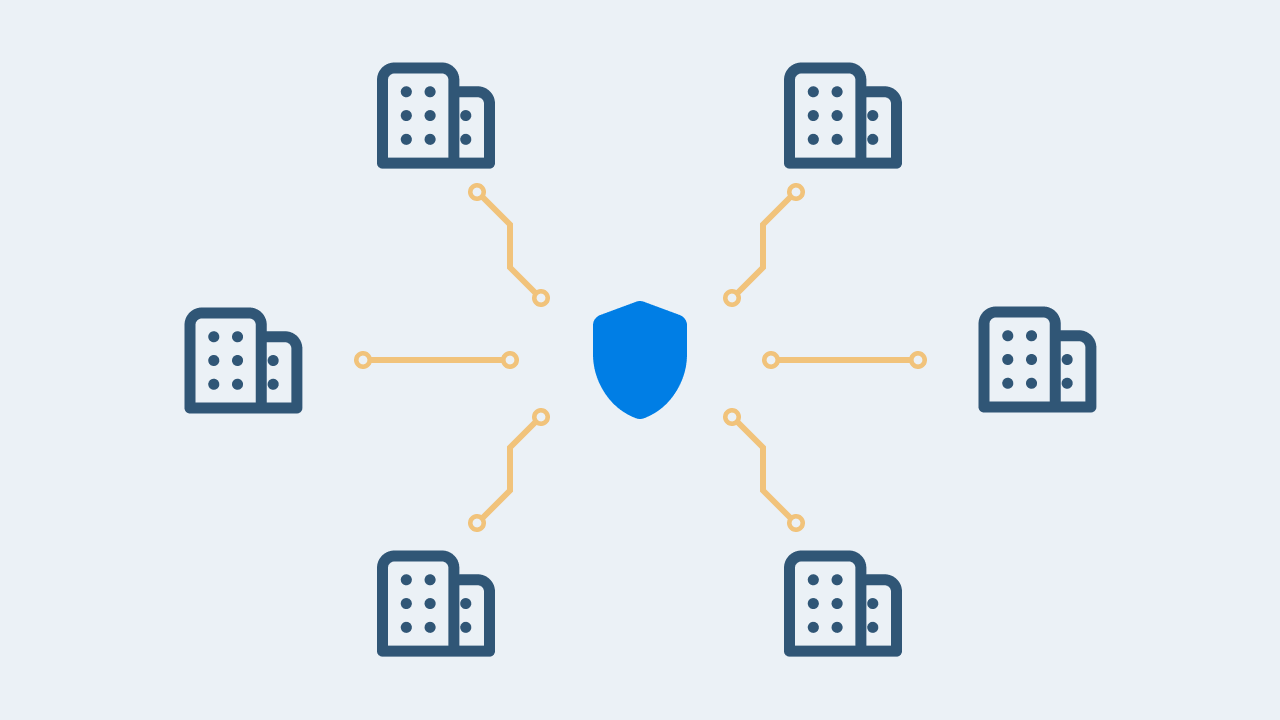How Business VPNs Work: Securing Corporate Networks in the Digital Age
In today’s interconnected business environment, the necessity for secure and reliable network connectivity is paramount. Business Virtual Private Networks (VPNs) have become a cornerstone of corporate network security, empowering organizations to protect sensitive data, enable secure remote access, and comply with data privacy regulations. This comprehensive guide delves into how business VPNs function, their key features, and their pivotal role in modern enterprise cybersecurity strategies.
The Rise of Business VPNs
Business VPNs have become an essential component of corporate IT infrastructure, with adoption rates soaring in recent years. As of 2025, 93% of organizations utilize VPNs for work purposes, highlighting their widespread acceptance and value. The global VPN market, valued at $88.96 billion in 2025, is projected to experience explosive growth, reaching $534 billion by 2034 with a compound annual growth rate (CAGR) of 22%.
This rapid expansion is driven by several key factors:
- Increased adoption of remote work
- Escalating cybersecurity threats
- Stricter data privacy regulations
- The need for secure access to cloud-based resources
How Business VPNs Function

At its core, a business VPN creates an encrypted tunnel between a user’s device and the corporate network, ensuring that data transmitted remains private and secure. This process involves several critical components and steps:
VPN Client
The VPN client is software installed on the user’s device—be it a computer, smartphone, or tablet—that initiates the connection to the VPN server.
VPN Server
The VPN server acts as the gateway to the corporate network, authenticating users and managing encrypted connections.
Encryption
Data is encrypted before it leaves the user’s device, rendering it unreadable to potential interceptors.
Tunneling
The encrypted data is encapsulated within packets that traverse the public internet to reach the VPN server.
Authentication
The VPN server verifies the user’s credentials before granting access to the corporate network, ensuring only authorized users can connect.
Decryption
Upon arrival at the VPN server, the data is decrypted and forwarded to its intended destination within the corporate network.
Key Features of Business VPNs
Modern business VPNs offer an array of features designed to enhance security, improve performance, and simplify management:
Advanced Encryption Protocols
Business VPNs employ robust encryption protocols such as OpenVPN, IKEv2, and WireGuard to secure data in transit.
Multi-Factor Authentication (MFA)
MFA introduces an additional security layer by requiring users to provide multiple forms of verification beyond a password.
Split Tunneling
This feature allows organizations to route specific traffic through the VPN, optimizing bandwidth usage and enhancing performance.
Network Segmentation
VPNs can be configured to grant access only to specific network segments, bolstering overall security.
Scalability
Enterprise-grade VPNs are designed to accommodate a growing number of users and locations without compromising performance.
Cloud Integration
Many business VPNs offer seamless integration with cloud services, facilitating secure access to cloud-based resources.
Introducing ZeroVPN: Leading the Way in Business VPN Solutions
As the demands on business VPN services intensify, ZeroVPN has emerged as a leader in addressing specific connectivity and security challenges. ZeroVPN excels in providing solutions tailored for modern enterprises, focusing on:
Comprehensive Security
ZeroVPN employs cutting-edge encryption standards and multi-factor authentication to safeguard sensitive corporate data.
Efficient Remote Work Solutions
Designed to support remote workforces, ZeroVPN offers secure, reliable access to corporate networks from any location worldwide.
Scalability and Integration
With ZeroVPN, businesses can scale rapidly and integrate smoothly with existing cloud services, thanks to its flexible and robust architecture.
Enhanced User Experience
ZeroVPN prioritizes user experience, offering intuitive interfaces and streamlined processes to ensure ease of use across all devices.
Benefits of Using ZeroVPN for Your Business
- Heightened Data Security: ZeroVPN‘s advanced encryption protocols ensure that data remains secure, even on untrusted networks.
- Seamless Remote Access: Employees can effortlessly connect to corporate resources, enhancing productivity and collaboration.
- Regulation Compliance: By utilizing ZeroVPN, organizations can maintain compliance with international data protection laws.
- Cost Efficiency: ZeroVPN reduces the need for extensive on-premises infrastructure, providing a cost-effective solution for secure networking.
Conclusion
Business VPNs, including solutions from ZeroVPN, play a crucial role in securing corporate networks and enabling secure remote access in our increasingly digital work environment. As cyber threats continue to evolve, staying informed about the latest VPN technologies and best practices is essential.
For businesses seeking to enhance their network security, ZeroVPN represents a forward-thinking option that combines robust security with superior user experience.
Take the Next Step with ZeroVPN
To learn more about how ZeroVPN can elevate your organization’s network security and enable secure remote access, reach out to our cybersecurity experts for a personalized consultation.
